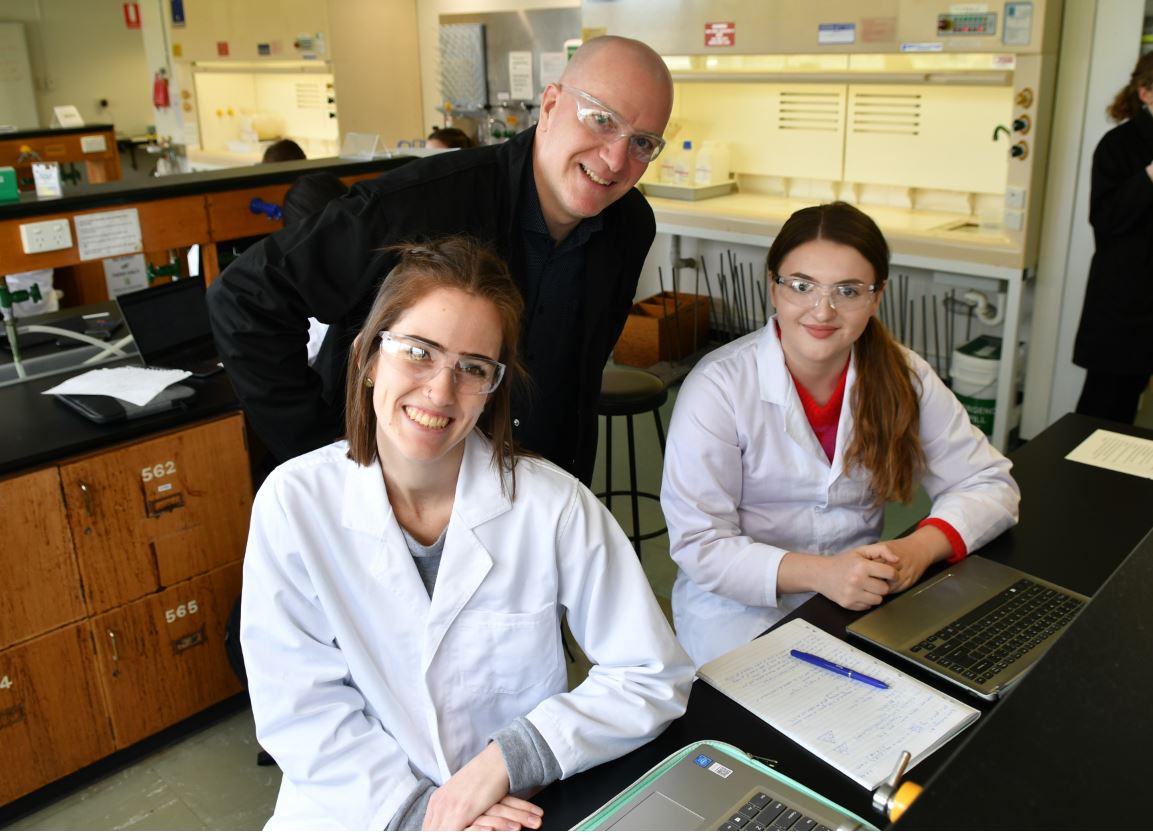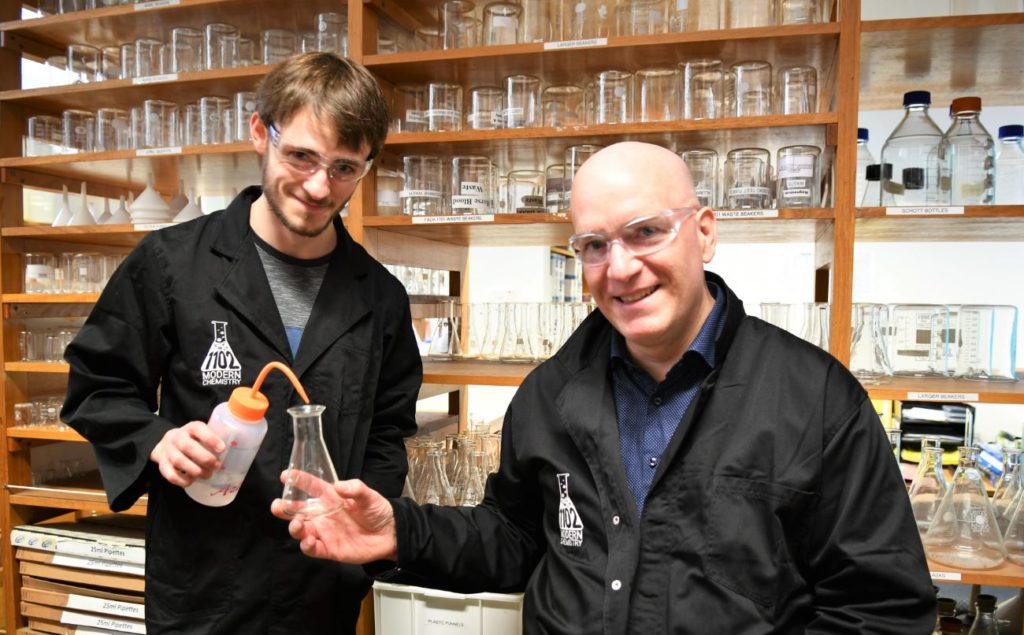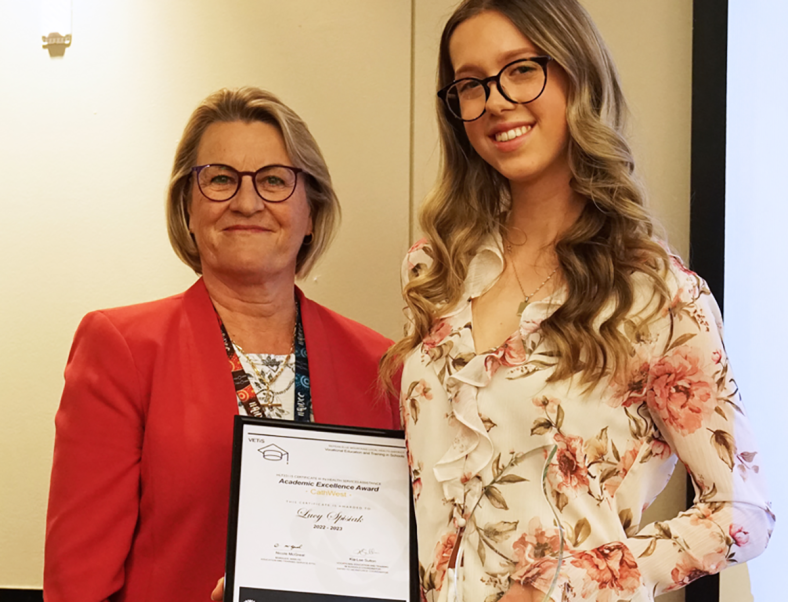
In one of the first of its kind, first-year Modern Chemistry has been ‘turned on its head’ at Flinders University in a pioneering new program which removes lectures, tutorials and even the final exam.
All interactions with students happen in the lab, where first years decide and design their own lab projects to cover theoretical and practical requirements and discuss outcomes with academic staff.
A new report, covering student feedback from the subject between 2016-18, has shown a high level of engagement and students feeling better prepared for subsequent studies.
While not graded, the students are assessed in individual discussions with academics or demonstrators. Students can ‘only’ get a non-graded pass and most students actually pass.
“We talk with the students about what they need to know,” says Associate Professor Ingo Köper. “By talking with students, we actually get a much better feeling what the students know and can push them further, and also make sure we are at the right level.”
Associate Professor Ingo Köper says the initiative was taken when students were not attending lectures, and generally preferring a more flexible approach to their learning, pairing with more freedom to design their own learning pathways.
“A lot of textbook knowledge is available online now and students are willing to manage their own time, organisation, planning and self-learning more now than ever,” he says.
“There have been different approaches on how to make ‘dry’ scientific concepts more interesting and to enhance student engagement, ranging from problem-based learning approaches, case studies and ‘flipped classroom’ models.
“The new structure on a fairly classic first year chemistry course allows students to gain knowledge and understanding purely through their own range of challenges – and it seems to work, particularly for their future tertiary learning in higher years,” Associate Professor Köper says.

Brodie Parrott, pictured, was one of the first students to enrol in the Modern Chem lab pilot, has now progressed to PhD studies with Associate Professor Köper, while assisting with demonstrating the topic to Flinders first-year students this semester.
“It’s really fun to demonstrate and always interesting to listen to students explaining new concepts and being able to share my love of chemistry with them,” he says.
Brodie’s PhD in nanotechnology is investigating the membrane disruption mechanisms of novel polymeric antimicrobials on tethered bilayer lipid membranes.
While some students might need more guidance than others to experiment and explore, the paper say the ‘brave experiment’ has shown that “careful design can frame an experience that is fun and enjoyable for students and that also supports students to learn across cognitive, psycho-motor and affective outcomes”.
“The topic is designed to increase not only student’s knowledge, but also their lab skills and interest in chemistry overall,” Associate Professor Köper concludes.
Read the paper:
Turning chemistry education on its head: Design, experience and evaluation of a learning-centred ‘Modern Chemistry’ subject (2020) by I Koeper, J Shapter, V North and D Houston has been published in the Journal of University Teaching & Learning Practice (volume 17 / issue 3 / 13).
The study received support from Australian Government Department of Education and Training in the form of an Office of Learning and Teaching National Senior Fellowship.








